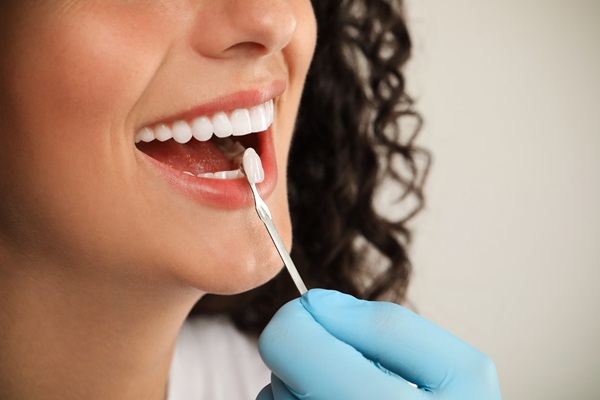Dental Tartar: What Is Dental Scaling?

Scaling is part of the cleaning process to eliminate or clean out excessive dental tartar. In contrast to regular cleaning that focuses only on the surface of the teeth, scaling goes an extra level. If the dentist recommends getting dental scaling, it is a good idea to get familiar with the process.
What is dental scaling?
Scaling is a regular dental procedure usually performed on patients with gum diseases. This cleaning extends to the gum line to clean plaque accumulation. Also called deep cleaning, the procedure of scaling and planing is usually part of your regular dental visits.
When is dental scaling required?
Everybody deals with a type of plaque buildup. Saliva, bacteria and nutrients combine to form a thin sheet of covering on the teeth. When eating, small food debris, acids and sugar tend to join the layer and after a while, accumulate to what is called plaque. The bacteria in the plaque is responsible for gum diseases and tooth decay.
If the gums are healthy and the bone tissues fuse around the tooth tightly, that is enough to stop plaque invasion. Once gum diseases start, the tissue will loosen around the tooth, creating pockets that can house plaques and worsen the condition considerably.
If you already have plaque buildup, the dentist will suggest dental scaling to clean out the plaque and treat gum disease.
The scaling procedure
Two primary methods exist for teeth scaling. First, the dentist may use handheld instruments: a metal tool called a dental scaler, or curette, to scrape plaque from the tooth. Then, a thin device will be inserted to below the gum line to clean plaque from areas that the toothbrush cannot reach.
Otherwise, the dentist may use an ultrasonic device for teeth scaling. The device has a vibrating metal point and a cool water spray. The metal point scrapes the tartar while the water flushes and cleans the pockets.
Usually, a procedure called root planing follows dental scaling. Root planing goes deeper to clean the surface of the root. Planing helps smooth the surface of the tooth’s root to ensure the gums reattach correctly.
How does the procedure feel?
Dental scaling is not always convenient, especially if your gums are sensitive. The dentist may administer local anesthetic to numb the gums and make the process more bearable. Talk to your dentist about sedation if you are worried about the discomfort of the entire procedure.
The procedure may require multiple dental visits, depending on how extensive the tartar or gum disease is. Each appointment will address different areas of the mouth. Depending on the dentist’s technique, the mouth may be divided into two or four halves.
What to expect after the treatment
You may experience teeth soreness or sensitivity following the procedure. Sometimes, swelling and bleeding may occur, but the dentist may recommend desensitizing toothpaste and painkillers to manage the symptoms. You may be given a prescription to get dental rinses to keep the gums free of dirt.
Overall, you should take your oral hygiene and dental appointments seriously to prevent the reoccurrence of the condition.
Request an appointment here: https://www.houstonpersonaldentist.com or call Jeff Tollett, DDS at (713) 622-3240 for an appointment in our Houston office.
Check out what others are saying about our dental services on Yelp: Root Scaling and Planing in Houston, TX.
Recent Posts
Gum disease treatment can restore health to the smile. A family dentist — who often provides cosmetic services in addition to general dental care — offers targeted solutions based on the severity and progression of gum disease. Early detection and prompt intervention can halt or reverse the condition. Exploring how family dentists treat gum disease…
Want to understand what gum disease can do to one’s mouth? Once someone is diagnosed with this oral disease, there are many ways it can cause them to experience bad overall dental health. Patients who are diagnosed can ask their general dentist any specific questions they have about preventing and treating gum disease, as prevention…
Gum disease is an infection of the soft tissues within the mouth. Many people suffer from a form of gum disease without even realizing it. The gums often get overlooked during oral hygiene, which can make it easy to miss the signs. Keep reading to learn more about what the signs look like. Outlined below are…
Are you thinking about making an appointment with a laser dentist? This recent form of dentistry is becoming more common in both preventive and restorative care. It is helpful to learn more about what this professional can do and how visiting one can benefit your oral health and smile. In laser dentistry, the dentist can…


